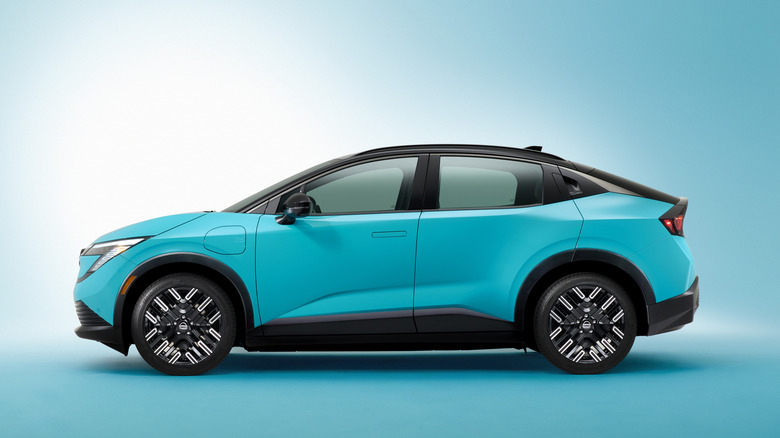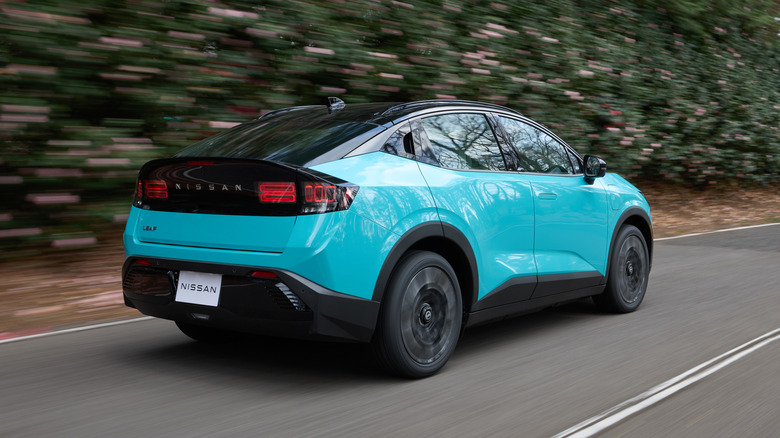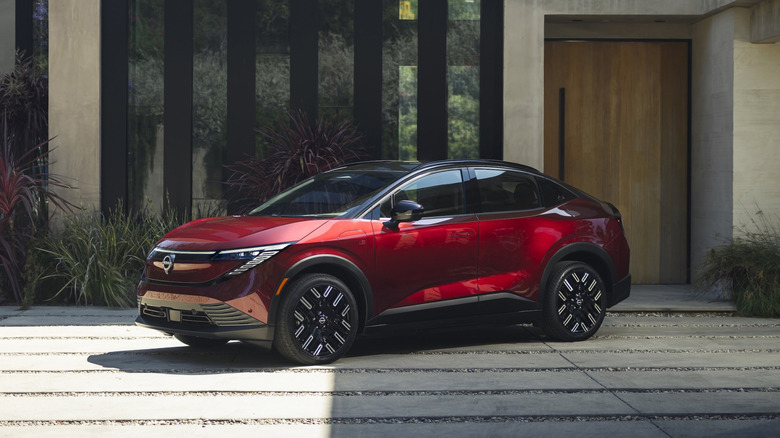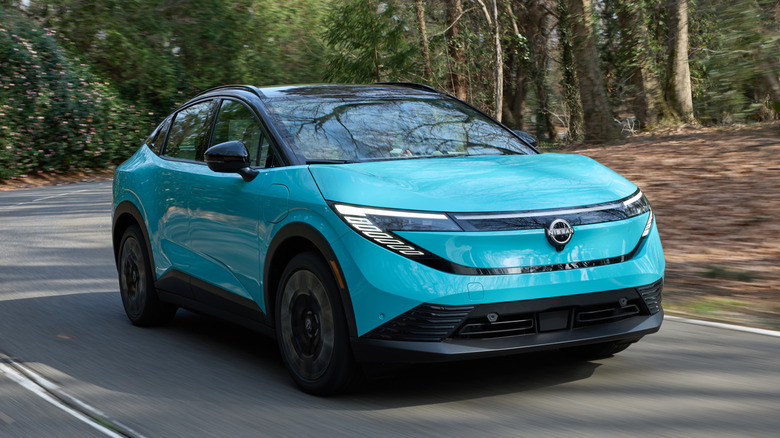Move Over Tesla, Nissan's New Leaf Just Priced You Out Of The Mass Market
Nissan has unveiled pricing information for the newest generation Leaf EV and, as it stands, the 2026 Nissan Leaf will be the least expensive electric car on the U.S. market. Full stop. The starting price for the Nissan Leaf in S+ trim is $29,990 (before destination fee), and better yet, the range has even gotten more competitive at an estimated 303 miles before the battery runs dry. To appeal to the mass market even more, it comes with a standard NACS plug meaning you can charge it at a Tesla Supercharger station if your heart so desires.
Nissan may have just out-Tesla'd Tesla in the mass-market EV department. The 2026 Leaf sits $12,500 — roughly the price of a used older Nissan Leaf — under the Tesla Model 3, and $15,000 under the wildly popular Tesla Model Y. The Teslas have more range at an estimated 357 miles for the pair, but is it worth spending well over 10 grand for 54 extra miles? Probably not.
Outdoing the competition
It's not only Tesla that Nissan has in its crosshairs, either: the new Leaf undercuts mass-appeal EVs from other big automakers as well. The Chevy Equinox EV is priced at $33,600 and gets an estimated 319 miles of range (less with all-wheel drive); Nissans latest and greatest compact EV also beats Hyundai's least expensive EV in both range and price. The Hyundai Kona EV is priced at $32,975 and gets 261 miles on a charge. Neither the Equinox nor the Kona are particularly "bad deals," but with Nissan's announcement, the Leaf is just mathematically better in pricing and range. The public will have to get behind the wheel to see how it feels to drive and live with (SlashGear is itching to review one as well).
Long before Tesla unveiled the Model 3 as its entry to revolutionize the world of electrified cars for everyone, Nissan had the Leaf all the way back in 2011. Back then, the oddball EV hatchback wasn't particularly athletic or a long distance runner, but it's inarguably one of the first electric cars to be successful on a bigger scale than something like the GM EV-1.
A bright future for EVs
Now, in its latest iteration, the 2026 Nissan Leaf seems like it's finally in place to fulfill the job it set out to complete 14 years ago. While Tesla has managed to incrementally upgrade its small lineup over the years (and sell a lot of cars), that lineup has gotten stale (operating under the leadership of Elon Musk hasn't helped much). Competitors from Hyundai and General Motors are poised to eat Tesla's lunch. Meanwhile, each Nissan generation has gotten significantly better than the last, in all departments including looks, interior, specifications, and cold hard numbers.
Nissan still has a lot of hurdles in its way to get out from behind the pack in terms of the rest of its lineup. Nissan's bread and butter cars like the Altima or the Pathfinder are pretty good, but they fall short of greatness. The new Nissan Leaf could be the Hail Mary pass needed to inspire the rest of the automaker's divisions, encouraging them to pick up the slack and make cars that appeal to people financially and emotionally to the point where they pick a particular Nissan over the competition. That feat remains to be seen.
Nissan now needs to sell the car
In the right-here and right-now of the latter half of 2025, the 2026 Nissan Leaf is in a really good spot to get a grip on the EV market. The tech is proven. All of the numbers look good. The pricing is great, and — on a superficial but no less important note — the car has the looks to boot. Now its up to Nissan to actually sell it. As Tesla repeatedly falls on its own sword and people look for alternatives to Musk's pride and joy, it's now Nissan's job to kick it into gear and bring the new Leaf to the forefront.
The Leaf will show up in Nissan dealerships this fall. Perhaps more excitingly, Nissan teased an even lower price Leaf S trim. As for what range that'll have, and how it will be priced, we don't yet know. Still, in the current economy — and with EV incentives in the U.S. on shaky ground — an even more affordable EV could easily put Nissan ahead of the curve.



